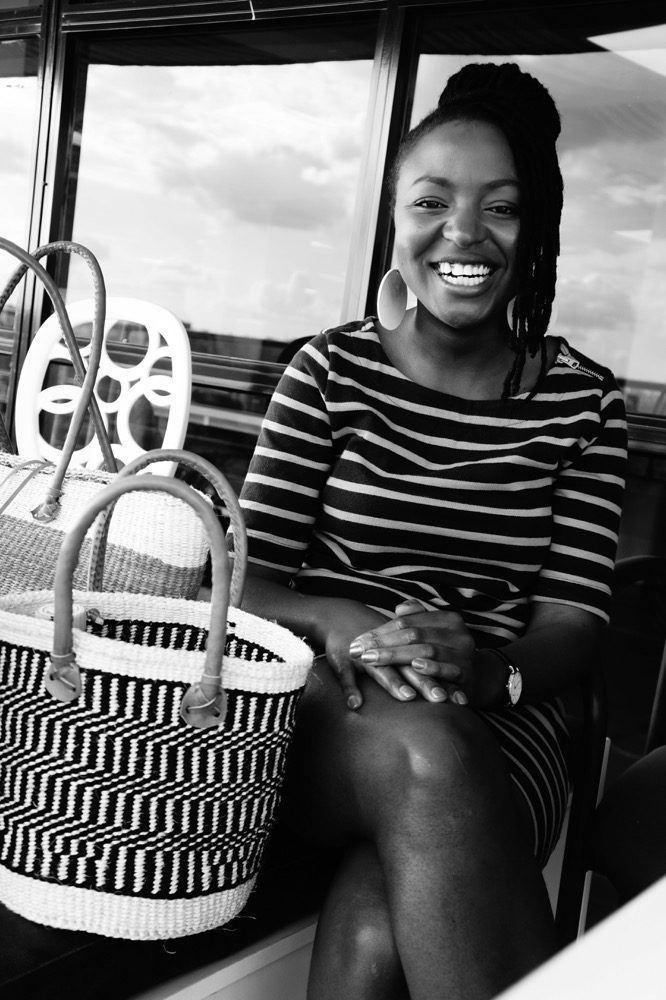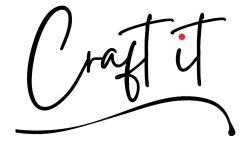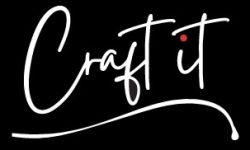BY MIKE MUTHAKA
Margaret Wanjiru smoked her first cigarette with her campus boyfriend. They had just had sex. He sat by the open window in his boxers, taking a drag of the cigarette before handing it to Maggie. She smoked because she wanted to impress him. A steady wind was blowing. Maggie remembers how grey his room was, and how handsome he was.
She was wearing his shirt. He was from Coasto. He had the accent and he was in good in bed. They weren’t anything serious. It was just sex. Maggie would sit up on his bed and listen to that thick Swahili and think, “Oh my God, that sounds nice. I don’t know what you’re saying but it sounds nice.”
She was majoring in accounting at UoN. She’d also done CPA in Strathmore but she dropped out because it “was too much and too boring.”
“Unaeza imagine ningekuwa accountant pahali naangalia watu na miwani namna hii…” She lowers her specs down the bridge of her nose, peers above the lens, and says, “Umekuja na P.O?”
We chuckle.

We’re seated on the balcony of the ninth floor at her office at Mirage Towers. It’s Friday.
Maggie is 26. Her day job is an account manager at a digital advertising agency. The air is warm and Maggie is surrounded by viondos, products of Ras Crafts, her five-month-old business. Ras Crafts also sells picnic bags and jewellery organizors.
“In June last year,” she says, “I thought about starting a canvas bags business. But I didn’t have money because I was paying off HELB. I finished paying off HELB by August. Then, when I started working here [ad agency], I opened a Ras Crafts page on IG and Facebook. Then I didn’t do anything else.
“You know how at the end of the year you take stock? The only thing I’d done that year is pay HELB. Can you imagine? I felt really bad about myself.
“And canvas bags are a bit tricky, getting a fundi you can rely on and one who doesn’t distort your design because they think what they have is cooler is like… it’s so hard.
“I got a fundi in Gikomba who, up to date, has never delivered one bag by the way. I even went and picked my canvas. Now me and my canvas are in the house looking at each other like: me, canvas, tunaangaliana.”
She laughs. Her laugh is easy and infectious, like joy is naturally weaved into the fibres of her person.
“So disappointing,” she continues. “So I decided to start with the kiondoo. I called my friend who sells them, although not locally. She knits and ships them out. She took me to a lady who sells viondos.
“I bought eight bags. And then I went home. It was on a Friday. I was so excited. I took photos and posted them. They sold out by that Sunday. Then people started asking me, ‘do you have more?’
“I was like, ‘Gai. I was not ready. You guys. I’m just starting. Ata sikuwa najua mta-like. Ni nini sasa?’ You know? Haha.
“I took the cash and bought a second batch. I was selling one at 1,500. I bought horrible bags. Even I myself wouldn’t carry those bags. Surprisingly they also sold out. I only have one bag left in my house, which I use on market day, Saturdays.
“Up to recently I never kept the profits. I’d just buy more stock. Last month there was a street fair, by a page called Savannah Art. All you need to do is pay a vendor fee, which gives you a table, then they advertise on their page, then people come and buy.
“I bought 38 bags. At the fair I did very well. I went back home with nine bags. Now I have like 23 bags in my house. I’ve started saving kidogo cash.
“I’ve been able to get back the money I’ve put in the business. I do my calculations on Sundays after church. I have a ka-book. But there’s this app called Waves that I should probably start using. It’s for accounting. A ka-book you might lose track. I’ll look at it the app this coming Sunday.”

“As I get older, I want to do my own thing. Leave formal employment. I think I’d feel more fulfilled doing something that I actually love doing, ‘cause I like working with my hands.
“[Initially] I didn’t think I’d make a good business person. I was a bit timid. But in 2016 we had a challenge with my friends: How about we save money? Then in October 2017 we met and everyone decided what they wanted to do with their money.
“I leased a tea farm from a farmer in Gatundu. It’s not very profitable. You make money once a year, during the bonus. But I liked making money. When the bonus came I was like, ‘Heh, kumbe you can just sit like this and have money?’”
Perhaps Maggies’s business mind was fostered in high school, St. Francis, Mang’u. She’s always loved writing, and love-stricken girls would pay her with a loaf of bread in exchange for apt and sweet words from Maggie’s pen.
“In high school I had one goal – to pass the exams. Other girls had boyfriends, but they didn’t have the words. Me I had the words, but I didn’t have the boyfriends. Haha.
“So you pay me with bread. Or you plait my hair for free. Business thrived, my friend. Mkate nilikula. I was a cheap-ass human being. It worked though.”
She smiles.
Then in third year, her and four other friends formed a chama. The goal was to eventually start a cleaning company called Trix. They’d save 200 bob every Friday. Maggie was charged with registering the business. She went to Huduma Center, then to Sheria House. It was during this errand that Maggie stumbled upon another business idea: she would run errands for people.
“On the side, I’d register businesses for people. I don’t remember what I called that business. Something Errands. I even have the business certificate in my house.
“I had a ka-Facebook page. I’d post ‘I’m available today’ and people would send their documents on email then I’d go register their business for them. And then I’d be paid a gee.” She adds with a chuckle, “It was a lucrative business.”
“Or if you wanted house shopping done, you’d just give me a list, then we do a tentative price, then you send it to my M-pesa then I shop. If there’s extra I’ll just add. Then when I deliver it to your house you could either decide to give me 2,500 or a commission off your shopping, like 10%.
“Most people preferred giving me the two five because maybe the shopping was a lot. I was 21. I was never loitering around school and people thought I was cool. I wasn’t. I was just trying to make money.”

After campo Maggie got a job at Crop Nuts, as a copywriter.
“I was doing blog posts. They would pay me 20K for twenty, 200-word blog posts. I did that for three months. Crop Nuts is about soil by the way.”
“Wait,” I say, “you were writing about soil?!”
“Yeah. I was writing about soil and growing up in ushago, heh, reke ngùìre . Kama nikutoka mbali nimetoka. I wrote the hell out of that soil.”
Her next job was at another ad agency called Alternative in Ngara. She came on as a social media intern for Urban Bites.
“Niko tu hapo niki-tweet vile mtakula Urban Bites.” She chuckles and starts typing on an imaginary keyboard. “’Kuleni Urban Bites nani.’ Haha.
One month later she got bumped up to Account Manager, handling Urban Bites and “some hotel in Murang’a.”

“So you’re an entrepreneur?” I say.
She takes a moment to think about it. “I don’t know. It depends with how you define that. In my mind an ‘entrepreneur’ is someone with a big business. Me I’m just starting, man. I like trying new things. If it fails, it fails. I think ‘entreprenuer’ is a strong word. Right now I’m kind of pushing my limit.”
“And what has Ras Crafts taught you about business?”
“You need to be patient. Like right now I have 23 bags in the house. There’s a time I’d stay with stock for so long, no one is buyng. Or sometimes you get so many orders you get overwhelmed. It’s a business.
“You won’t get customers every other time. Or even the lady who makes them. Sometimes she wouldn’t be in a good mood. You call her she doesn’t want to pick, and there’s nothing you can do. You meet her and she tells you, ‘me aki naumwa na kichwa.’
“Tsk. Sasa kama anaumwa na kichwa utafanya nini? So mostly patience. Your business won’t fly tomorrow.
“I’ve also learnt to separate yourself from the business. If someone doesn’t like the product, they just don’t like it. It’s not that they don’t like you as a person. It has nothing to do with you. It’s just, they’re not into viondos. Accept that and move on.
“Also I read somewhere that the person that you are bleeds into the business. If you’re a rude peron you’ll be rude to the customers. So as you’re working on the business you have to work on yourself.”
Maggie looks away for a long moment.
“I come from a very dysfunctional family. So I have to constantly remind myself to love myself enough. I have a step dad that wouldn’t be an ideal husband. He doesn’t drink, surprisingly, but he’s a wife-beater, which I really don’t like, but there’s very little I can do about it because it has to be my Mom’s decision, and it’s not like we’ve not had this conversation about it, so… yeah.
“It really just irks me, and my mother doesn’t want to make that decision and I can’t keep parenting her, so now I have to stop thinking for her as a person and think about me. But you know how selfish that is. Once in a while the guilt will catch up then you’ll want to do more, then you’ll discover this is a lost case by the way I don’t need to die with this. So you have to keep jirudisha-ing to the line like: ‘Wewe. Wacha. Ku. Fanya. Hivyo. Twende tukalewe’.”

We laugh. And when I finally ask her how it feels to be a millennial in Nairobi, she says,
“I feel like older people especially in the workplace are like, ‘These young millennials don’t even work hard’. But we work, so hard. We work up to 10 in the night. They just like throwing that word around and disregarding everything we’re doing because we’re millennials. We should be left alone.
“And please pay us more. They’re like, ‘This one is a millennial. Let’s give her 45gees.’ What the hell are you going to do with 45gees in this Nairobi? And that’s kabla hujatoa PAYE. Ukitoa unabaki na 23 thousand. Unalipa rent hiyo ingine unakunywa maji. Haha.”
Check out Ras Crafts on Instagram.
—-
Mike blogs at www.mikemuthaka.com




ey,rudini tafadhali….or did you guys move without my knowledge??
Awww. Hahha, that’s a sweet and funny question. Really thoughtful of you to ask, Bobo.
We’re here. Still here. Very much here. We actually can’t leave. I met Mike recently for a catch up and I told him Craft It has us by the cajones — there’s nowhere we’re going.
The looming question, though, one he asked me and one I’ve asked myself severally, is, How do we make this sustainable, financially? How do we make it work for us?
(Hang on, have I overburdened you, Bobo? Hahha. My bad.)
overburden me you did😂,but i can leave with that…i have an idea,cliché as it may be,how about every now and then you get to promote brands here and in return you get some cash? would that make it any better??
Yeah. What Bett said. We’re not leaving 🙂